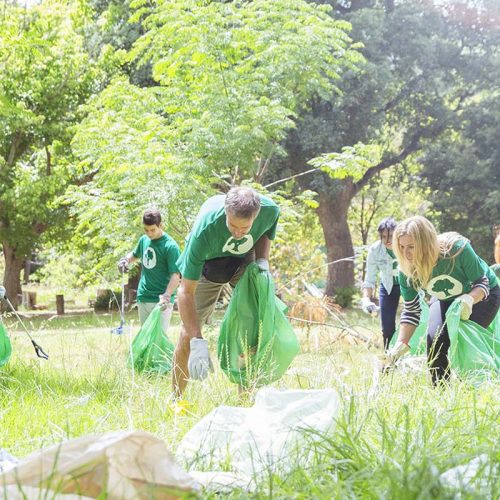We therefore want to make every effort to position
ourselves as an environmentally friendly.
Corporate Responsibility & Sustainability
The goal of sustainable development is to act in an economically sound way while conserving resources, maintaining the social equilibrium, and protecting our environment. As a family-owned business, this principle is of special importance to us and guides our decisions. The goal of sustainability is to satisfy current needs without affecting the capacity of future generations to satisfy their own. Aksu Bitum Terminal is building infrastructure that will enable the introduction of necessary goods for the future in an effort to help future generations satisfy their needs and contribute to a more sustainable economy.
Aksu Bitum Terminal unveiled a sustainability strategy that centers on five key areas in order to enhance sustainability throughout our supplier chains and corporate operations. We evaluate our progress in achieving our growth objectives and sustainability plan in our yearly Sustainability Report. We share stories from Aksu Bitum Terminal’s global portfolio and report on important KPIs. Check out our most recent report to learn more.

Ethics and compliance
Our company upholds the highest ethical standards and ensures that all business operations are conducted in a compliant manner. This is achieved through our ethics and compliance framework, which includes tools and procedures that assist both internal and external stakeholders in managing compliance risks. Our compliance management system fosters a strong ethics and compliance culture within Aksu Bitum Terminal by being in accordance with all applicable laws, regulations, and internal standards. The focus is on supply chain compliance, competition legislation, sanction-related subjects, and the avoidance of bribery, money laundering, and corruption.
Corporate social responsibility
We firmly feel that corporate citizenship has an obligation that extends beyond commerce. Our strategy is long-term and targeted at producing long-lasting effects. In addition to providing direct corporate funding for these programs, we also urge staff members to get involved and lend a hand.
Various tools and approaches are employed to anchor the six major strategic concerns outlined above in our global activities. Our HSSE Policy incorporates the pertinent principles to firmly create accountability for environmental and social issues at the highest level. Our corporate policies and standards are formulated using globally acknowledged principles of responsible entrepreneurship. Our Code of Conduct, which all employees must abide by, serves as the foundation for this.
Internal audits, the installation of certified management systems, and statistical key performance indicator monitoring are further tools (Key Performance Indicators – KPIs). We will be incorporating sustainability even more deeply into our everyday workflows and processes going forward, as it is fundamental to our vision of securing our viability for the future.
Environmental Protection
Both directly and indirectly, our actions have an effect on the environment. As a result, we want to do everything in our power to present ourselves to potential clients as an environmentally conscious organization that has very little adverse environmental effect.
We are well aware that our business activities pose potential risks to the environment and that we rely on resources such as energy, water and building materials. We must therefore make every effort, now and in the future, to keep any negative impact on the environment as low as possible. To achieve this, we have set high environmental standards for ourselves.
Energy Consumption & Savings
Climate Protection Initiatives
Since we are conscious of the environmental impact of our business operations, we work to provide alternatives, increase energy efficiency, further optimize our resource management, and create and support environmental protection initiatives. Numerous of our locations have established environmental project teams that, among other things, design and assess regional waste, water, and energy conservation strategies.
